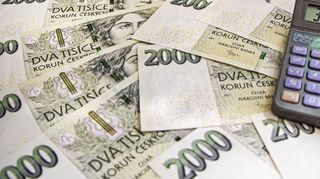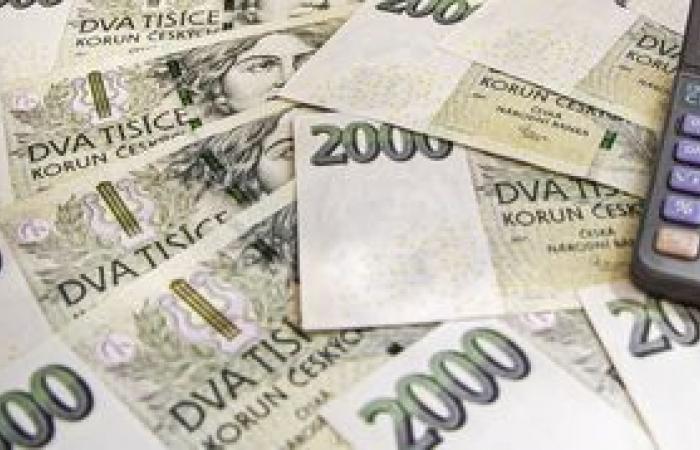WITH extraordinary tax The government has not yet had a good experience with banks. Of the expected 33 billion crowns, which were supposed to cover subsidies for expensive energy, “only” 700 million flowed from the banks to the windfall tax last year.
Therefore, as SZ Byznys reported last week, politicians are preparing a different way of taxing the financial sector. Three of the five coalition parties, i.e. STAN, KDU-ČSL and Piráti, are not opposed to the debate on a special tax that would be imposed only on the banking sector.
Chairman of the Elders Welcome Austrian he sees in it a solution to prevent the outflow of bank profits abroad. The largest Czech banking houses are part of the Austrian, French and Belgian groups. “If no other way is found to ensure that the profits of the local banking sector do not go to foreign mothers to such an extent, I think this option is also in play,” he said when asked by SZ Byznys Rakušan.
Bank capital outflows abroad are also a problem according to the deputy Jan Skopeček from the ODS. However, according to him, the sector tax is not the best medicine. “I was and always will be against the sector tax. We have always rejected it in the ODS. It doesn’t bring anything positive. Banks have long been the biggest tax payers. It is good that they are doing well. The question is how to motivate them to invest the profits here and not take them abroad as dividends.” TOP 09 also rejects special taxation of the sector.
Will a sector tax pay for affordable housing?
On the other hand, the head of another coalition party KDU-ČSL can imagine a sector tax Marian Jurečka. While revenues from the windfall tax contribute and will contribute – according to the current legislation until the end of 2025 – to the government’s extraordinary costs in the energy crisis, Jurečka sees other uses for potential revenues from the sector tax. They would be used to pay for affordable housing projects.
“The windfall tax aimed at bank profits did not achieve the desired result. That is why we can imagine a sectoral tax that would be able to direct bank profits, for example, into supporting affordable housing,” Minister of Labor and Social Affairs Jurečka told SZ Byznys.
He would like to increase investments in the construction of affordable housing by ten to 15 billion crowns. So far, in the upcoming reform of affordable housing, seven billion is calculated, which should be used for the construction of new affordable rental apartments by 2026.
According to Daniel Prokop from the research organization PAQ Research, who is also a member of NERV, it makes more sense to use money from elsewhere for housing support. “It is better to cut the support that is already there. Abolish state support for building savings and cancel or significantly cut support for mortgages. After all, part of it goes to the banks,” says Prokop.
According to Prokop, it is here that a decent amount can be “saved”, which would help pay for the construction of affordable rental housing, which is so lacking. “We are giving 27 billion crowns for housing support, although the housing allowance will decrease, but mortgage discounts will increase, so the amount will be similar this year,” estimates Daniel Prokop.
Banks: Clients will take it
Even the Pirates are not opposed to the debates on the introduction of an extra tax on banks. “For the Pirates, we are generally not against fair taxation of the banking sector, many countries in Europe have some form of insurance contribution to the fund or some other form of tax. But it would depend on the specific parameters, nothing has been presented to the government yet, if that happens, we are not opposed to the discussion,” the party chairman told SZ Byznys Ivan Bartos. For example, in Slovakia, the banking sector is taxed at 30 percent.
The specific parameters of the proposal are not yet known. And not even in the NERV advisory body, as its member, an economist from the Center for Economic and Market Analysis, points out Ales Rod.
“To me personally, measuring too high profitability or taxing sectors according to finger riding in annual reports does not strike me as an attractive principle of economic policy. The Czech Republic faces major infrastructure investments in energy and transport and challenges in the field of pensions, healthcare and social care. When debating banks, I would therefore start from their standard functions in the economy, it seems more efficient to me. But let’s wait for the proposal,” stated Rod.
He believes that the profits of the big banks are not abnormal. “There is a lot of talk about the profit of big banks, but the efficiency and stability of the banking sector is not measured by net profit. If we look, for example, at the profit on average assets, which have been growing quite significantly in the banking sector in recent years, we will find that profitability is lower than in 2019,” said an economist for SZ Byznys.
According to the Czech Banking Association, clients would also bear the sector tax as a result. “In general, however, it can be said that the sector tax will not only fall on shareholders, as its creators might hope, but will have wider negative consequences, it will partly affect the employees of the institutions affected by the sector tax, and partly it would probably be negatively transferred to clients as well,” said the press spokesman of the association, Radek Šalša.

According to the Ministry of Finance, coalition negotiations on the subject of the sector tax on banks are currently not underway. “At the moment, however, there are no coalition negotiations on the sectoral taxation of banks. However, if any government party requests its convening on any topic – including the sector tax – then, as always in such a situation, the meeting will take place,” said Petra Vodstrčilová from the press department of the Ministry of Finance.
The Ministry of Finance is waiting to see how the windfall tax will turn out
The Ministry of Finance is now evaluating the revenues from the extraordinary income tax to date and comparing them with the costs incurred by the state to help households and companies at a time of high energy prices.
“It also includes an analysis of windfall tax income from banks. Subsequently, the Minister of Finance will present the material to the coalition/government, which will decide whether to keep the windfall tax for the entire legal three-year period, or whether to shorten it by a year. Any change in that case would of course have to go through the legislative process,” wrote Vodstrčilová. Minister Zbyněk Stanjura (ODS) has previously stated that they are not personally opposed to “cutting” the windfall tax earlier than the end of 2025.








